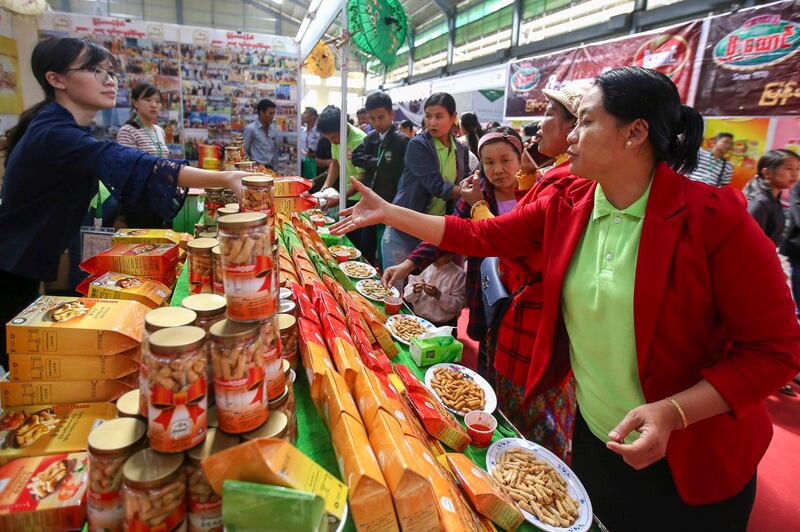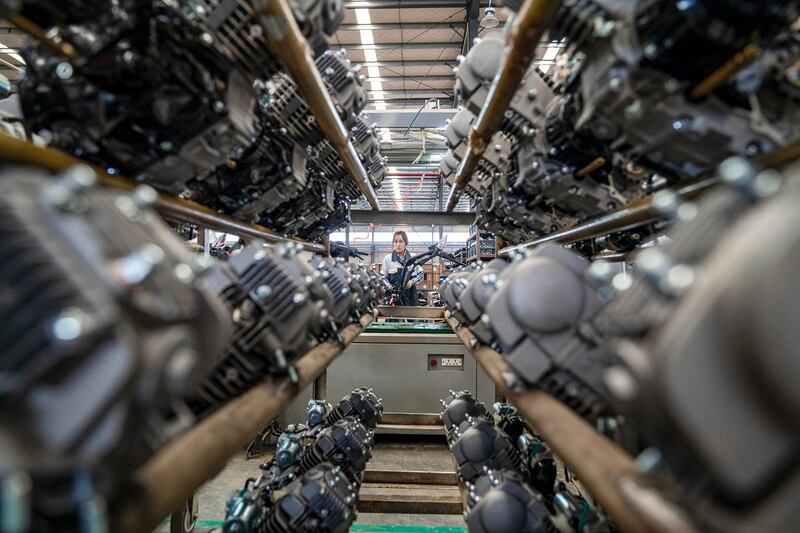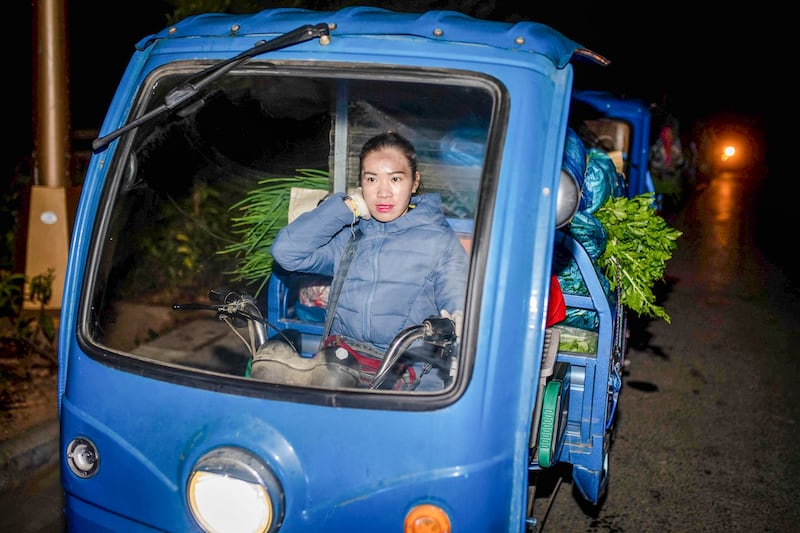Read RFA coverage of this story in Burmese
Nearly 2 million people in Myanmar’s northern Shan state are facing a shortage of medicine and other basic commodities after China shuttered its border, according to residents and ethnic rebels, who said prices for goods have “skyrocketed” in the region over the past two weeks.
On Aug. 25, Chinese authorities closed border gates serving 20 Shan state townships and Myanmar’s junta began restricting trade routes, as a group of rebel factions known as the Three Brotherhood Alliance pushed the military out of major towns in the region.
The alliance, which first launched an offensive against the military in October 2023, now controls 21 townships in northern Shan state, as well as five border gates in the townships of Kyin Sang Kyaut, Chinshwehaw, Yan Long Keng, Mone Koe, and Nam Hkam.
Lway Yay Oo, the spokeswoman of one of the ethnic alliance members known as the Ta’ang National Liberation Army, or TNLA, told RFA Burmese that residents of areas under its control no longer have access to the basic necessities they had come to rely on through border trade.
“Since China closed the border gates, and the junta has blocked trade routes, there is a serious shortage of medicine in our area,” she said.

Residents of northern Shan state said they believe that China – one of the junta’s few international allies and the largest foreign investor in Myanmar – shut down the border as part of a pressure campaign to end armed conflict in the area.
“Some pharmacies have tried to get medicine to sell, but it's not enough,” said a resident of Kutkai township who, like others interviewed for this report, spoke on condition of anonymity due to security concerns.
“It is difficult to get medicine for the sick and vaccinate the children,” he said, adding that people in the area cannot afford to pay to have supplies delivered from Myanmar’s urban centers, such as Yangon, which are dealing with their own shortages amid the country’s civil war.
Residents said that the prices of remaining stock have “skyrocketed” since the gate closures.
RELATED STORIES
[ China fires into Myanmar after junta airstrike on border, group saysOpens in new window ]
[ Fighting flares near state capital in north MyanmarOpens in new window ]
[ Northern Myanmar residents caught up in fighting, dozens hurtOpens in new window ]
A pharmacy owner in northern Shan state, who also declined to be named, told RFA that since the junta cut off trade routes, only small quantities of the most important drugs are being transported within the region.
"It is not easy to transport medicine, and we can only smuggle urgently needed supplies,” he said. “Chinese medicine is out of stock now, although we can get B-6 and B-12 [vitamin supplements].”
Attempts by RFA to contact Khun Thein Maung, the junta’s minister of economy and spokesperson for Shan state, for comment on the situation went unanswered Thursday, as did efforts to reach representatives from China’s Embassy in Yangon.
Protecting Chinese interests
China’s border closure follows three separate meetings last month between Chinese Foreign Minister Wang Yi and Chinese Ambassador to Myanmar Ma Jia and junta representatives, during which Beijing sought assurances that the military regime would protect its projects and citizens in the country.
In response, the junta pledged to prioritize the safety of China’s assets, according to a statement released by Chinese authorities.
But amidst the intensifying conflict in Myanmar, control over at least 10 Chinese projects has shifted from the military to armed opposition groups, including ethnic rebels and the anti-junta People’s Defense Force, or PDF, according to an Aug. 19 report by the Institute for Strategy and Policy – Myanmar.

They include the Muse Border Economic Cooperation Zone, Kunlong Dam, Kunlong Bridge, Chinshwehaw Border Economic Trade Zone, Naung Pha Dam, Lancang-Mekong Environmental Cooperation Center, Goteik Bridge and New Road Project, Sinn Shwe Li-2 Sugar Factory, Alpha Cement Factory and Takaung Nickel Factory, the group said.
When questioned about the situation, TNLA spokeswoman Lway Yay Oo told RFA that all Chinese projects under her group’s control in northern Shan state are currently suspended.
"Given the ongoing instability in the region, we have temporarily suspended all investments,” she said. “Moving forward, we are working to develop the necessary policies in order to resume operations when conditions allow.”
Junta ‘no longer accountable’
Nay Phone Latt, spokesperson for the Prime Minister’s Office of Myanmar’s shadow National Unity Government, or NUG, told RFA that the junta no longer has the capacity to safeguard Chinese projects.
"The current regime is in a position where it is unable to ensure its own security, let alone protect the citizens of the country,” he said. “I want to clearly state that it can no longer be held accountable for the safety of international investment projects, foreign workers, or the security of those involved."
Nay Phone Latt noted that the PDF is currently providing security for the Takaung Nickel Plant, a US$855 million Chinese-owned mining project. He said that while “discussions have taken place” between the NUG and China regarding the plant, he could not disclose details of the talks at this time.
In addition to the China-Myanmar oil and natural gas pipeline, ethnic rebel groups may partially control railways, roads, waterways and trade routes within the China-Myanmar Economic Corridor, which forms part of China’s broader Silk Road infrastructure initiative.

According to the Institute for Strategy and Policy – Myanmar, at least nine Chinese investment projects in Kyaukphyu and Thandwe townships, located in Rakhine state, are now partially controlled by the Arakan Army, or AA.
When asked for comment, AA spokesperson Khaing Thukha said that foreign investment projects will be protected. "All parties involved in the ongoing conflict in Myanmar have expressed the need to safeguard China’s interests,” he said.
RFA contacted junta spokesperson Major General Zaw Min Tun regarding the Chinese projects now under the control of ethnic groups, but received no response.
Translated by Kalyar Lwin and Aung Naing. Edited by Joshua Lipes and Malcolm Foster.
